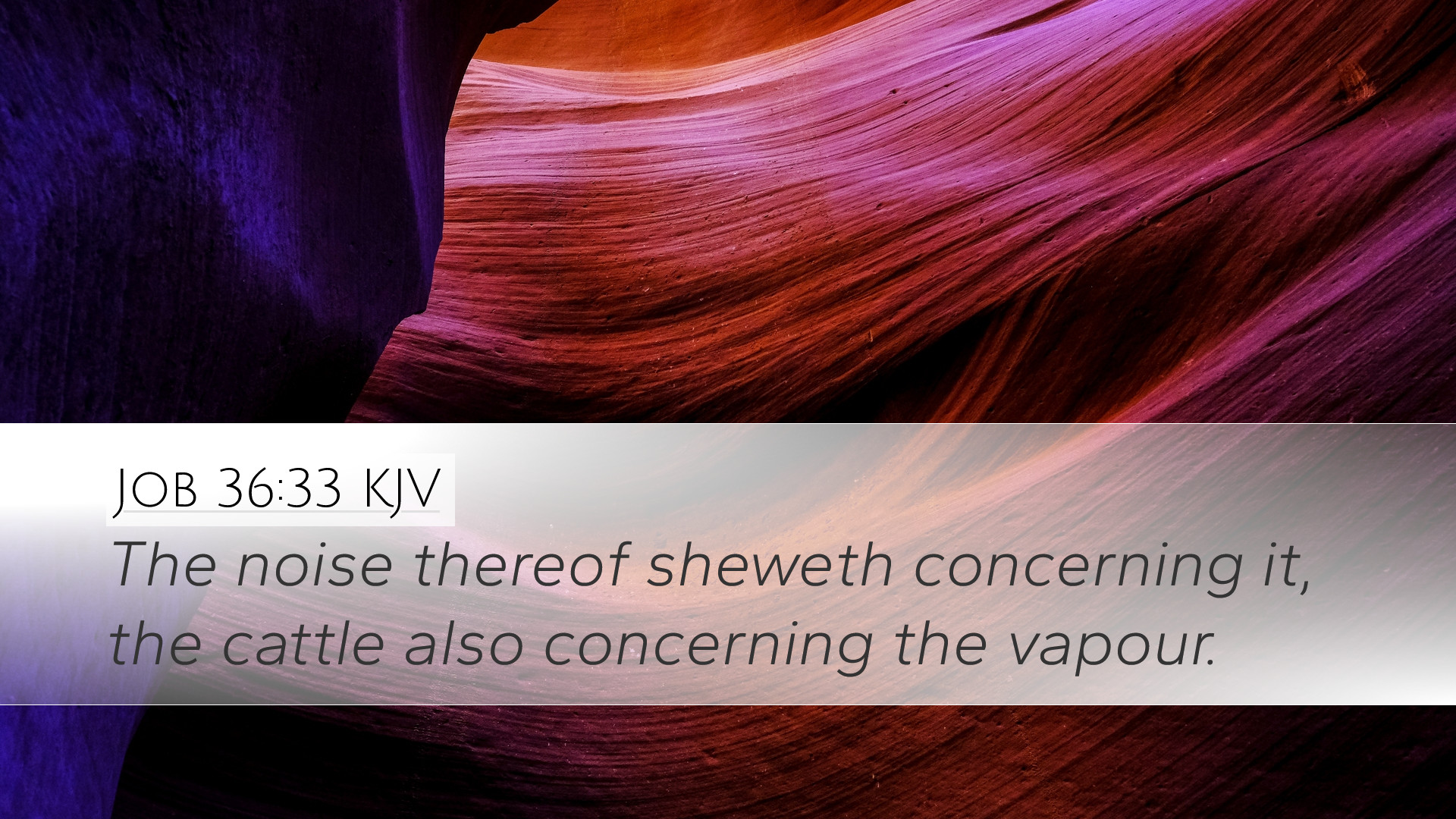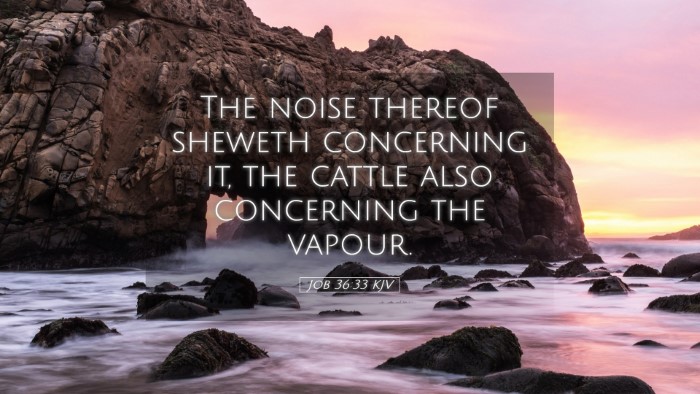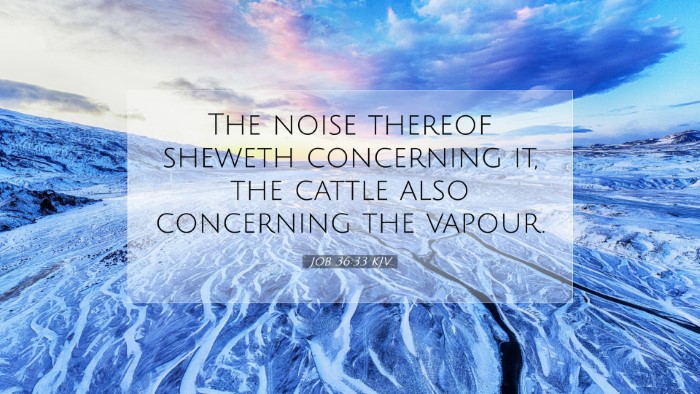Old Testament
Genesis Exodus Leviticus Numbers Deuteronomy Joshua Judges Ruth 1 Samuel 2 Samuel 1 Kings 2 Kings 1 Chronicles 2 Chronicles Ezra Nehemiah Esther Job Psalms Proverbs Ecclesiastes Song of Solomon Isaiah Jeremiah Lamentations Ezekiel Daniel Hosea Joel Amos Obadiah Jonah Micah Nahum Habakkuk Zephaniah Haggai Zechariah MalachiVerse
Job 36:1 Job 36:2 Job 36:3 Job 36:4 Job 36:5 Job 36:6 Job 36:7 Job 36:8 Job 36:9 Job 36:10 Job 36:11 Job 36:12 Job 36:13 Job 36:14 Job 36:15 Job 36:16 Job 36:17 Job 36:18 Job 36:19 Job 36:20 Job 36:21 Job 36:22 Job 36:23 Job 36:24 Job 36:25 Job 36:26 Job 36:27 Job 36:28 Job 36:29 Job 36:30 Job 36:31 Job 36:32 Job 36:33

